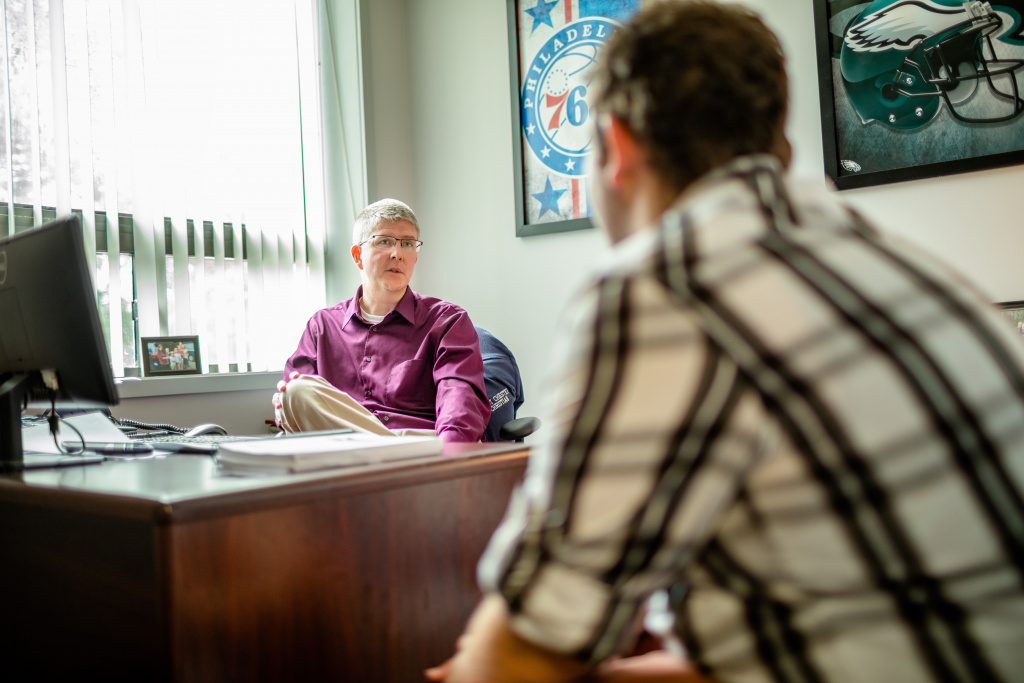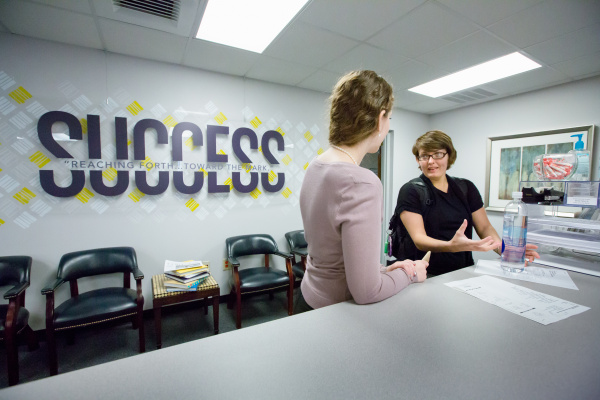As a child, being both a firefighter and the president of the United States didn’t seem like a big deal. But things aren’t that simple as a college student. After long talks with your parents, praying and crying to your resident assistant, you’ve decided it’s time. You’re changing your major.
What are the steps to reach the best decision? If you’re a freshman, look no further than your first-year advisor. If you’re a sophomore, junior or senior, you should look into the BJU Academic Resource Center’s transition advising.
Talk with the Transition Advisor
Director of Student Engagement and Success Rebecca Weier is BJU’s transition advisor. When sophomores and upperclassmen are interested in changing their major, Weier makes sure to engage them in conversation.
“I want to know what’s motivating this,” she said. “I want to make sure they’re going into a major where they can be successful and I want to make sure they know upfront how long it’s going to take them to finish if they make this change.”
Find Your Passion
The BJU staff wants to help students find a major they’re truly passionate about. With the help of Career Services, the transition advisor conducts the Strong Interest Inventory.
Career Services director of operations Shawn Albert explained that, while the inventory doesn’t guarantee the student will excel in a specific field, it clarifies the student’s interests. The assessment shows the interest similarities the student shares with individuals in occupations who really enjoy their jobs.
Albert said that “sometimes, instead of clarifying, [the inventory] will actually open up new ways of thinking, new occupational directions that [the students] were interested in but didn’t realize they were.”
Jane Smith, director of employer relations in Career Services and former transition advisor, said, “Lots of [students] don’t even realize what they want to do. That’s why the Interest Inventory is good. It helps give them ideas, things they hadn’t thought of before.”
Make a Decision
Weier notes that being indecisive for too long is one of the worst things a student can do. The best option is to be confident in a decision by the middle of their sophomore year.
“You just don’t want to keep changing—bouncing all around,” she said.
Weier advises students to “pick something and go with it early.” Students pursuing degrees that end with licensure or certification need to be sure of their choices initially. It’s easier to switch out of those majors into another because other degrees have more elective hours.
Weier warns those interested in accounting, nursing, engineering and premed that “you need to start there or you’re going to be behind. You’re going to add time to your degree program.”
Take Early Precautions
If you know a high school student unsure of which major to choose, help them start college on solid footing. Weier recommends they “use dual enrollment to explore” their interests further.
“A lot of students only use dual enrollment credits to get ahead of the Core® [general education courses],” said Weier. But when it comes to majors that end with a licensure or certification, using credits wisely will make a difference.
Weier helped her daughter Ella choose between business and education.
“She didn’t know if she wanted to open a bakery or be a teacher,” Weier said. So, during her senior year of high school, Ella used dual enrollment classes to better understand her options. She did well on both courses, but taking introduction to education made her realize teaching was God’s direction.
For those already in college, Smith suggests taking an elective. “There’s usually room for an elective that first semester so you can explore,” she said. “Take an elective in an area you’re interested in. Either you’re going to love it or you’re going to hate it. But at least you’ll know.”
Changing majors sounds inconvenient, but it can save a student from adding multiple semesters of school and increasing their bill. Weier said most students “have been told ‘you can be anything you want to be’ and that’s not true. You can be anything God calls you to be.”
Make an appointment with the transition advisor and find out what God is calling you to be.








